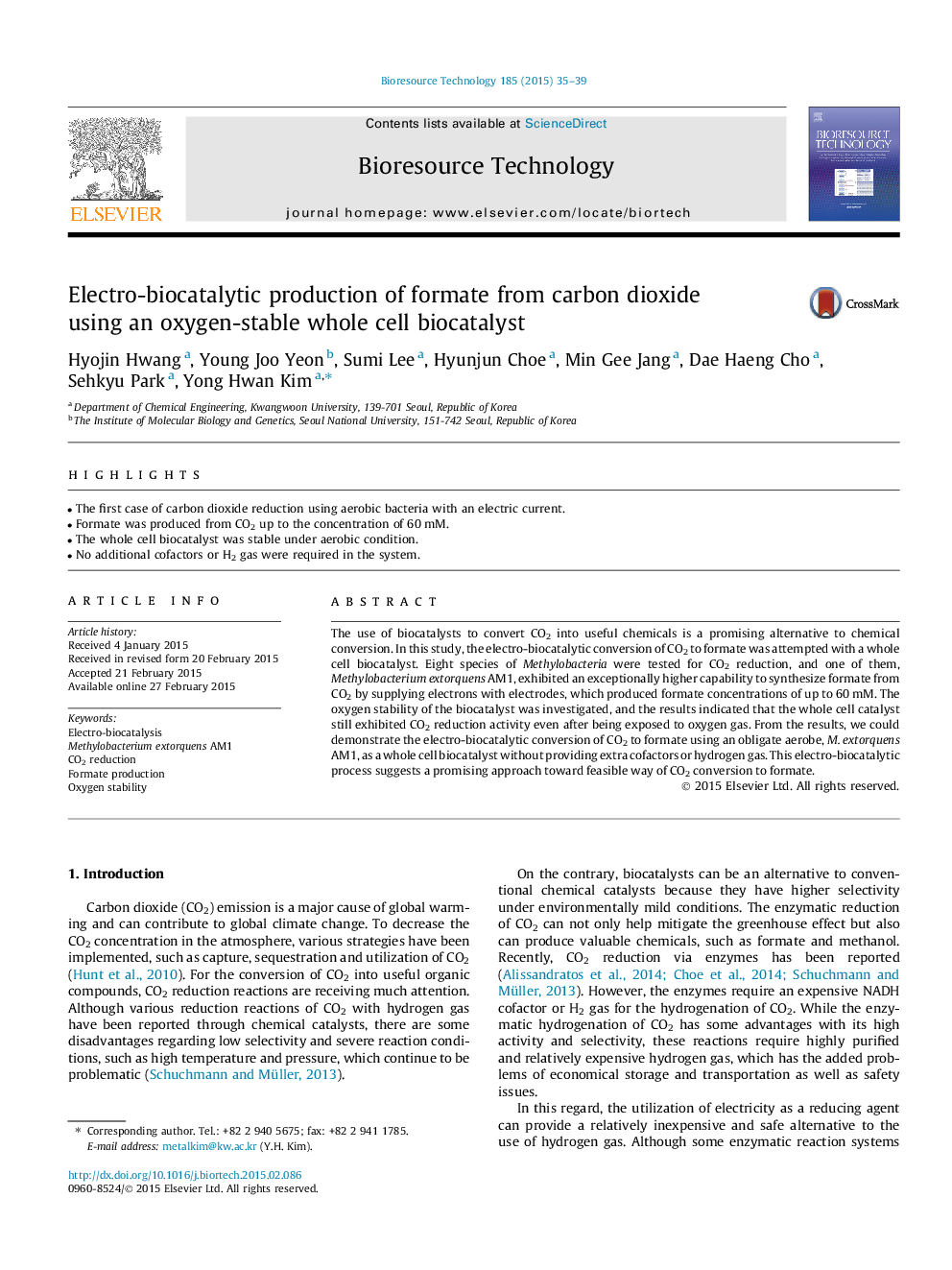| کد مقاله | کد نشریه | سال انتشار | مقاله انگلیسی | نسخه تمام متن |
|---|---|---|---|---|
| 679835 | 1459958 | 2015 | 5 صفحه PDF | دانلود رایگان |

• The first case of carbon dioxide reduction using aerobic bacteria with an electric current.
• Formate was produced from CO2 up to the concentration of 60 mM.
• The whole cell biocatalyst was stable under aerobic condition.
• No additional cofactors or H2 gas were required in the system.
The use of biocatalysts to convert CO2 into useful chemicals is a promising alternative to chemical conversion. In this study, the electro-biocatalytic conversion of CO2 to formate was attempted with a whole cell biocatalyst. Eight species of Methylobacteria were tested for CO2 reduction, and one of them, Methylobacterium extorquens AM1, exhibited an exceptionally higher capability to synthesize formate from CO2 by supplying electrons with electrodes, which produced formate concentrations of up to 60 mM. The oxygen stability of the biocatalyst was investigated, and the results indicated that the whole cell catalyst still exhibited CO2 reduction activity even after being exposed to oxygen gas. From the results, we could demonstrate the electro-biocatalytic conversion of CO2 to formate using an obligate aerobe, M. extorquens AM1, as a whole cell biocatalyst without providing extra cofactors or hydrogen gas. This electro-biocatalytic process suggests a promising approach toward feasible way of CO2 conversion to formate.
Journal: Bioresource Technology - Volume 185, June 2015, Pages 35–39